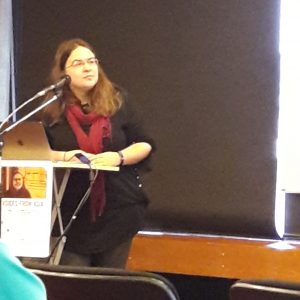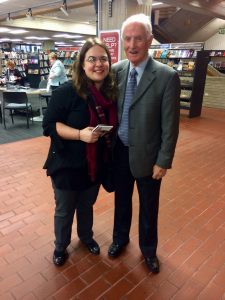Dr Tiffany Cone’s public lecture began with an overview of the Asian University of Women (AUW) before providing an outline of her current collaborative research on higher education and internationalisation.
Dr Cone advised that most academic women at her University were on full scholarships and many were from displaced backgrounds. They usually entered University after undertaking programmes to improve their literacy, numerical skills, communication in the English language and critical thinking.
Dr Cone’s current research project with Dr Vivienne Anderson of the Higher Education Development Centre at the University of Otago seeks to explore the reasons migrant and refugee women choose tertiary institutions, their sense of identity formation and belonging, similarities and differences between their narratives, and how the women’s narratives might suggest new ways of conceptualising internationalisation.
Drawing on rich personal testimonies within the AUW student body, Dr Cone noted that some students in the study envisaged ‘developing’ nations as more interesting and promising as postgraduate study sites than traditional ‘education provider’ countries. Most students communicated a desire to return to their homes after study in order to contribute to their communities.
In light of the women’s narratives, Dr Cone suggested a need to rethink internationalisation in relation to universities’ commitment to shared humanity rather than the global economy.



